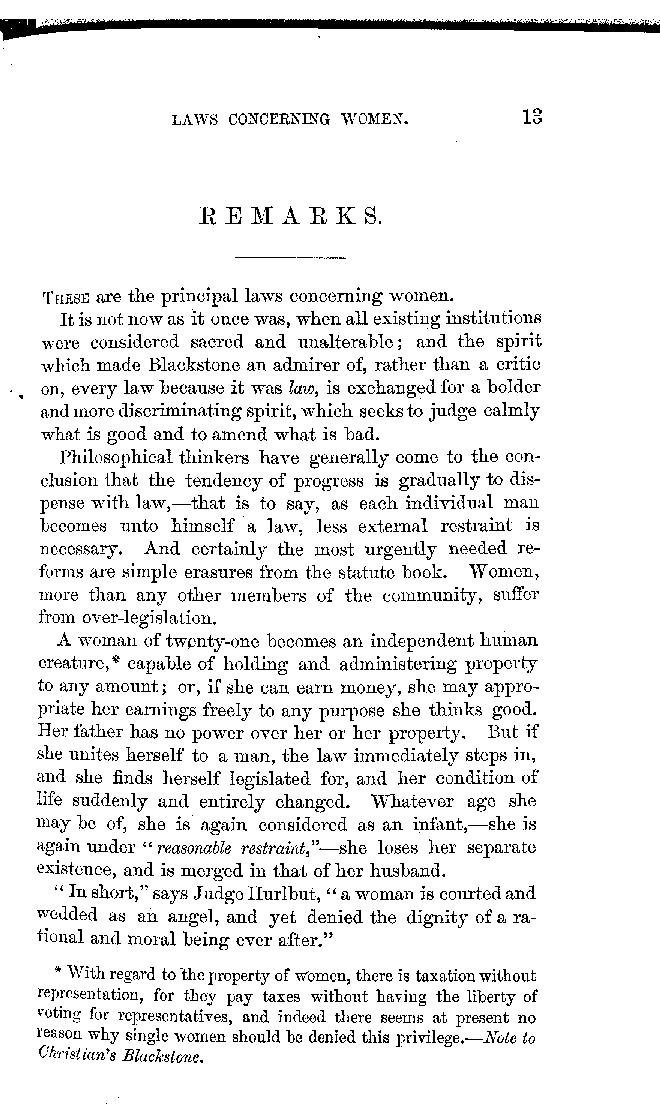REMARKS.
These are the principal laws concerning women.
It is not now as it once was, when all existing institutions were considered sacred and unalterable; and the spirit which made Blackstone an admirer of, rather than a critic on, every law because it was law, is exchanged for a bolder and more discriminating spirit, which seeks to judge calmly what is good and to amend what is bad.
Philosophical thinkers have generally come to the conclusion that the tendency of progress is gradually to dispense with law,—that is to say, as each individual man becomes unto himself a law, less external restraint is necessary. And certainly the most urgently needed reforms are simple erasures from the statute book. Women, more than any other members of the community, suffer from over-legislation.
A woman of twenty-one becomes an independent human creature,[1] capable of holding and administering property to any amount; or, if she can earn money, she may appropriate her earnings freely to any purpose she thinks good. Her father has no power over her or her property. But if she unites herself to a man, the law immediately steps in, and she finds herself legislated for, and her condition of life suddenly and entirely changed. Whatever age she may be of, she is again considered as an infant,—she is again under "reasonable restraint"—she loses her separate existence, and is merged in that of her husband.
"In short," says Judge Hurlbut, "a woman is courted and wedded as an angel, and yet denied the dignity of a rational and moral being ever after."
- ↑ With regard to the property of women, there is taxation without representation, for they pay taxes without having the liberty of voting for representatives, and indeed there seems at present no reason single women should be denied this privilege.—Note to Christian's Blackstone.
